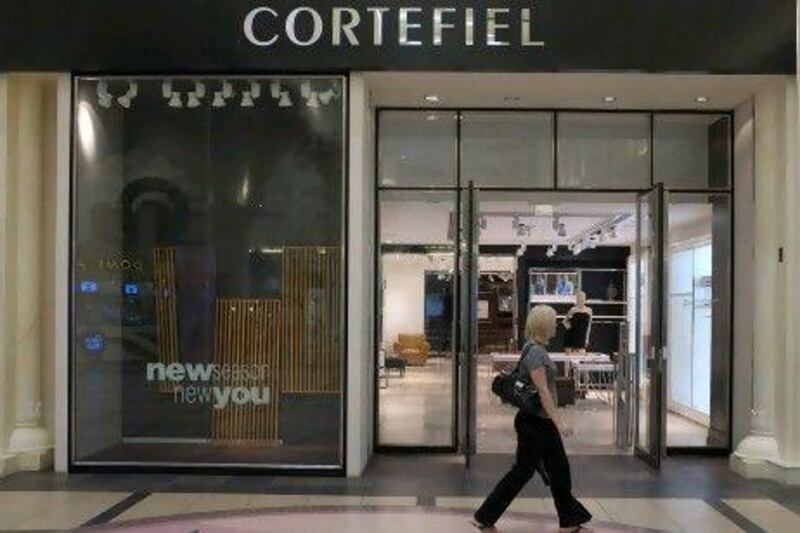Saudi Arabia's biggest retailer is pulling out of Dubai after complaining of rising rents in the emirate's most popular malls.
Shopaholics:
Industry Insights Get the scoop on what's happening in the retail world. Learn More
Retail Group Gulf, which is majority owned by the Fawaz Alhokair Group based in Riyadh, has closed more than 40 stores in Dubai and sold a number of its franchise agreements to other retailers.
It had stores in some of the emirate's biggest shopping centres, including Dubai Mall, Ibn Battuta and Dubai Festival City.
"Basically, given the recent trading over the last few years, the decision was made collectively by the shareholders to exit the market as the leases come to expiry," said Simon Marshall, the chief executive of Fawaz Alhokair.
Retail Group Gulf was the franchisee for 19 brands, including New Yorker, la Vie en Rose, Cortefiel and Club Monaco, and leased stores across Dubai. Fawaz Alhokair is one on the biggest retailers in the Middle East with more than 1,000 stores and the company runs numerous brands such as Marks & Spencer, Zara, Gap and Promod in Saudi Arabia. It holds about a 50 per cent share of the fashion segment in the kingdom. Mr Marshall said Dubai was now a "lose-lose" situation for many retailers as high rents damage margins.
"There's two sides to Dubai," he said. "There's a side where you have malls that are offering good rental rates but don't get the footfall to support the model and then you have malls that are getting the footfall but, because of the rates, don't support the model either. It's a bit of a lose-lose at this moment in time." Average retail rental rates remained stable in the first nine months of this year across malls, community developments, boutiques and convenience stores, at an average of Dh1,884 (US$512.90) a square metre, while mall rents remain much higher at more than Dh2,750 a sq metre, according to the property consultant Jones Lang LaSalle.
David Macadam, the head of retail for the Middle East and North Africa region at Jones Lang LaSalle, said rents at Dubai's most popular shopping centres, such as Dubai Mall and Mall of the Emirates, were about 20 per cent higher than at neighbouring malls.
The amount of rent paid was usually a combination of a base level and a percentage of annual sales, Mr Macadam said, so a store's products had to be strong to ensure profitability.
"It's not just about the rents, it also about your product offering, the service and the shopping experience inside the store."
Shopping centres such as Dubai Mall and Mall of the Emirates have experienced big increases in the numbers of local shoppers and tourists this year as consumer confidence has quickly returned in the UAE.
But older, smaller malls have been left trying to catch up and are now investing billions of dirhams in expansion plans and rejigging their portfolio of stores and entertainment options to attract customers. Management at both BurJuman and Al Ghurair Centre are investing heavily in increasing the size of their malls.
Retail Group Gulf's departure seems contrary to the performance of the overall market, with retail sales figures strong across Dubai this year and many brands reporting double-digit growth on last year.
However, analysts have warned that increasing rental rates could squeeze margins for smaller players in Dubai, such as Retail.
Companies that are the franchisee for just a few brands cannot negotiate the same rents as major retailers, while companies such as Landmark Group, MH Alshaya, Apparel and Azadea can demand more favourable rents because they offer malls a wider range of fashion brands as well as more choice on food and beverage. These companies can look after up to 50 brands in the Middle East.
Stuart Gissing, a director at Colliers International, the property consultancy, believes the smaller retailers with fewer brand franchisees have a vital role to play in keeping a diverse array of retail brands in the market, rather than just dominant names owned by major local retailers.
rjones@thenational.ae





